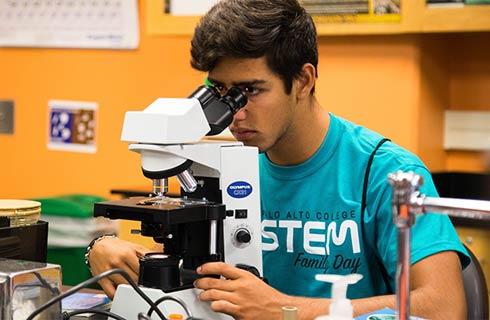Master of Science in Engineering Science - Environmental and Technological Hazards Engineering

学历文凭
Masters Degree

专业院系
环境工程学

开学时间

课程时长

课程学费

国际学生入学条件
A conferred baccalaureate (or equivalent) from a regionally accredited college or university by the expected date of entry into the graduate program. The Graduate School requires a minimum cumulative GPA of 3.0 on a 4.0 GPA scale or in the last 60 credit hours in the previous undergraduate or graduate coursework.
TOEFL minimum score of 550 (paper-based), 213 (computer-based), 79 (internet-based) OR
IELTS minimum score of 6.5
IDP—雅思考试联合主办方

雅思考试总分
6.5
了解更多
- 雅思总分:6.5
- 托福网考总分:79
- 托福笔试总分:550
- 其他语言考试:PTE minimum score of 59
CRICOS代码:
申请截止日期:请 与IDP联系 以获取详细信息。
课程简介
The interdisciplinary program spans the fields of engineering, science, business, and even law. In principle, a program of study in almost any imaginable concentration area in engineering can be designed. In practice, many students have developed programs in one of three concentration areas: materials science and engineering, environmental & technological hazards engineering, and information technology & engineering. Another area of specialization, bioengineering, is currently attracting student interest and encompasses the interface between engineering and biological science.<br><br>The concentration area in materials science & engineering involves coursework in mechanical, electrical, chemical and civil engineering, computer science, chemistry, and physics. The environmental & technological hazards engineering concentration area has components primarily from chemical and civil engineering, and environmental science, and secondarily from industrial, biological, and petroleum engineering, chemistry, business and sometimes law. The information technology & engineering concentration area encompasses the disciplines of industrial, electrical and mechanical engineering, and computer science, information systems and decision science, library information systems, and others. Likewise, bioengineering concentration area involves agricultural, civil, mechanical, chemical, and industrial engineering, chemistry, and the biological sciences.<br><br>A Concentration in Environmental and Technological Hazards Engineering can be pursued at either the MS or PhD level. It may be pursued as a concentration area with a Master of Engineering Science or PhD in Engineering Science program or as a concentration area in any of the core engineering disciplines. For Engineering Science students, the concentration requirements may be included in an approved program of study. For students of core engineering disciplines, the concentration requirements may be met through use of electives in their respective programs.<br><br>Environmental and Technological Hazards Engineering encompasses a broad range of topics. To ensure that a student develops depth within one or more of these topical areas, a Concentration in Environmental and Technological Hazards Engineering requires a combination of formal coursework within a particular topical area as well as additional coursework that may be drawn from a list of engineering courses approved for application to the Concentration. The list of courses within the currently available topical areas as well as the complete list of approved Environmental and Technological Hazards Engineering courses is attached. Students may also wish to pursue formal coursework in other colleges and departments that may supplement and support their concentration.
相关申请

预科

奖学金

实习机会

在校学习

跨境学习

校园授课-线上开始

在线/远程学习
学校排名
世界排名
501
数据源:泰晤士高等教育世界大学排名
本校相关课程
Bachelor of Science in Agricultural Business

学历文凭
Bachelor Degree
下一个开始日期
课程费用总额
Bachelor of Science in Agricultural Education

学历文凭
Bachelor Degree
下一个开始日期
课程费用总额
Bachelor of Science in Environmental Management Systems

学历文凭
Bachelor Degree
下一个开始日期
课程费用总额
Bachelor of Science in Natural Resource Ecology and Management

学历文凭
Bachelor Degree
下一个开始日期
课程费用总额
Bachelor of Science in Plant and Soil Systems

学历文凭
Bachelor Degree
下一个开始日期
课程费用总额
Bachelor of Science in Textiles, Apparel and Merchandising

学历文凭
Bachelor Degree
下一个开始日期
课程费用总额
其他相关课程
环境工程应用科学学士学位

滑铁卢大学
泰晤士高等教育世界大学排名:

学历文凭
Bachelor Degree
下一个开始日期
课程费用总额
环境工程应用科学硕士

达尔豪斯大学
泰晤士高等教育世界大学排名:

学历文凭
Masters Degree
下一个开始日期
课程费用总额
环境工程学硕士

达尔豪斯大学
泰晤士高等教育世界大学排名:

学历文凭
Masters Degree
下一个开始日期
课程费用总额
环境工程技术文凭

萨省理工学院
泰晤士高等教育世界大学排名:

学历文凭
Bachelor Degree
下一个开始日期
课程费用总额
替代能源技术文凭

北阿尔伯塔理工学院
泰晤士高等教育世界大学排名:

学历文凭
Bachelor Degree
下一个开始日期
课程费用总额
环境工程学硕士

渥太华大学
泰晤士高等教育世界大学排名:188

学历文凭
Masters Degree
下一个开始日期
课程费用总额





